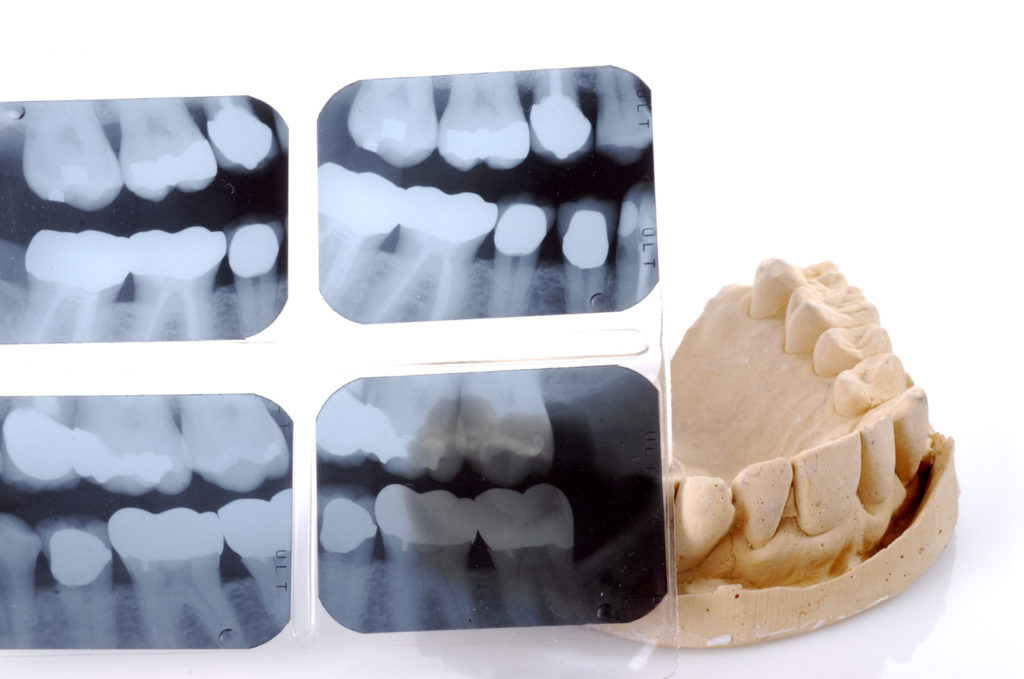Have you ever woken up with a stiff jaw, and you just can’t get your teeth to line up when you bite down? Have you ever chewed gum and felt your jaw pop with every bite up and down? There’s a strong possibility you may have a TMD.
You may have heard of the TMJ, or the temporomandibular joint, which are the hinge points connecting your jaw bones to your skull. These joints are located directly in front of the ears, and they give you the ability to speak and chew by moving side to side and up and down.
TMD is a temporomandibular joint disorder, and it actually refers to a range of disorders relating to the joints in your jaw. People that suffer from this disorder experience this joint not opening and closing as smoothly as it ought to, and can be the result of many different causes.
Symptoms of TMD can range from mild and occasional soreness to severe pain with impaired jaw movement. Common symptoms of TMD are:
- Popping or clicking of your jaw joints
- Experiencing pain while you’re chewing
- Regular headaches, potentially related to clenching your jaw
- The bite of your upper and lower sets of teeth do not fit well together
- Stiffness in your jaw that causes the joint to get stuck or lock up
- Your teeth don’t touch or line up well when you bite down
- Ringing or a stuffy feeling in your ears
You may be wondering if you’re suffering from TMD. TMD most commonly occurs in people between the ages of 20-40, and the causes of TMD can be:
- Clenching or grinding of teeth (either consciously, or while you’re sleeping)
- Stress, which can make you tighten your facial and jaw muscles
- Poor posture, which, over time, can result in misalignment of the jaw
- A traumatic injury to the jaw or surrounding areas
- Various types of arthritis (such as rheumatoid arthritis and osteoarthritis) can cause stiffness and create an offset bite
If you’re relating to these symptoms and causes, you may be relieved that there’s a reason behind the pain that you’re feeling. Even better, there are ways to treat TMD so that you don’t have these uncomfortable and painful feelings anymore.

While you may try to diagnose TMD yourself and start treatments on your own, it’s always best to go to a dentist or orthodontist if you suspect that you have TMD. A dental professional can assess the severity of your disorder and can give you the course of action for treatment – especially if corrective action must be taken to adjust the bite in your jaw.
If you have TMD and choose to address the problem yourself, there are many simple treatments that you can use to help alleviate your pain and discomfort, like:
- Managing your painful symptoms heat packs or ice, to treat headaches or other pains in the jaw area
- Reducing your jaw discomfort through stretching and massaging techniques
- Adjusting your diet to include soft foods, like grains, steamed vegetables, eggs, fish, cheese, ground meat, while avoiding crunchy foods like chips, salads, corn on the cob, hard kinds of breads
- Avoiding extreme jaw movements, such as chewing gum or ice
- Correcting poor oral habits, like biting on pens or other items
- Intentionally thinking about keeping your teeth disengaged, while holding your upper and lower jaw slightly apart, even when your mouth is closed
- Using splints or night guards to protect against unintentional teeth grinding at night (Dr. Silas can make you a custom fit mouthguard to help protect your teeth, and even move them back into alignment)
- In more serious situations, you may need treatment by an orthodontist or another dental professional to help correct your bite
Most cases of TMJ disorders will resolve themselves within a short period – usually within a couple of months. Some cases, however, may be ongoing or recurring.
If left untreated, TMD can cause inflammation and chronic pain and can lead to future dental problems, such as premature tooth wear periodontal disease. We highly recommended speaking to a dental professional if you’re experiencing symptoms that may point to TMD.

If you’re diagnosed with a severe case of TMD, you may be recommended a more specialized form of treatment. One example of this type of care is the use of a splint – sometimes called a bite plate – which will be custom fitted to your mouth by a dental professional.
There’s absolutely no need for this disorder to cause you pain forever. At Dudley Smiles, our goal is to help to improve your quality of life, which can be achieved through intentional and specialized treatment practices. Please call the office to set up a time to speak with Dr. Silas Dudley, who would love to discuss your symptoms and create custom treatment options for you. We’re excited to help you improve the health of your teeth, and develop methods of care that will let you live more comfortably.
